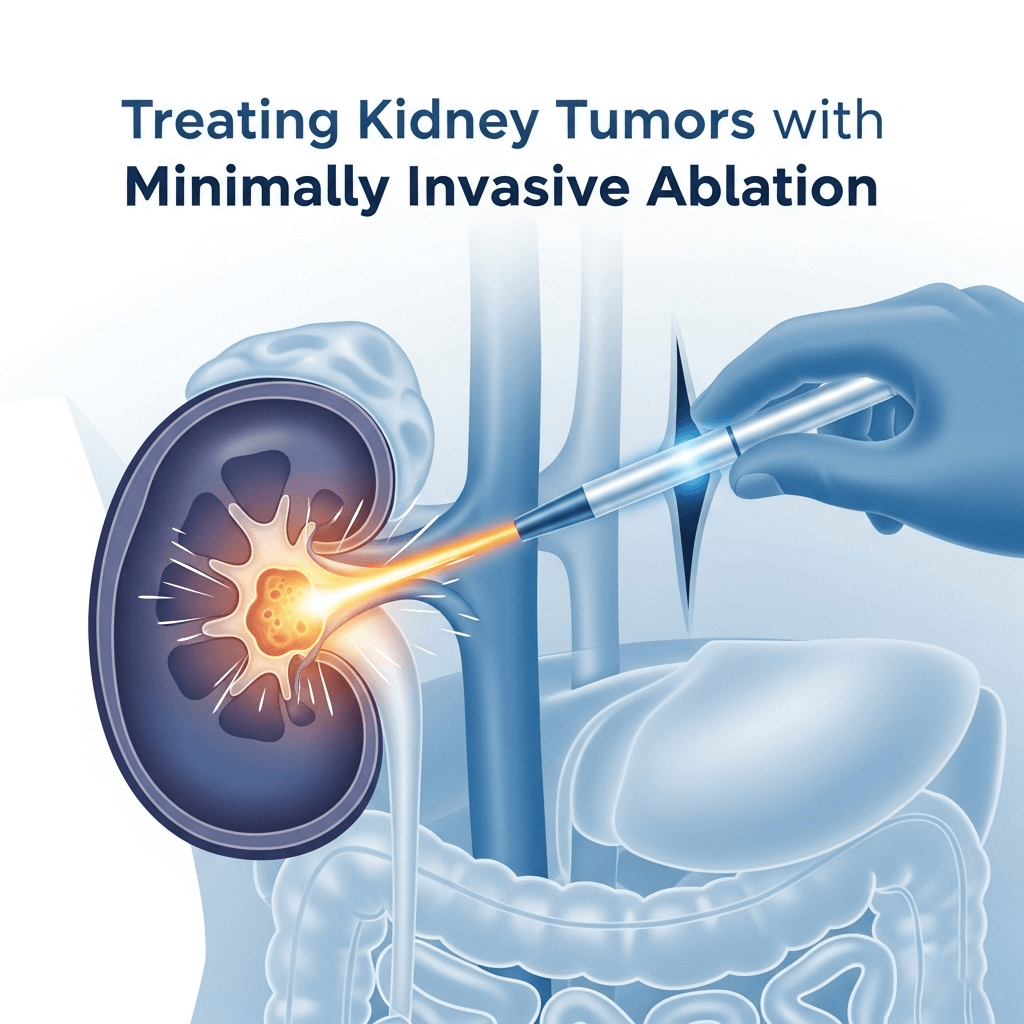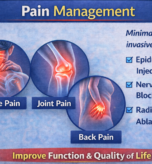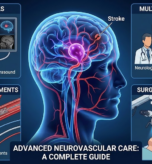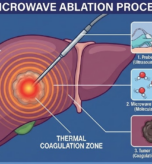Kidney Cancer Minimally Invasive Surgery: Breakthrough Options
Introduction
Kidney cancer is one of the most common urological cancers, and treatment approaches have advanced significantly over the last decade. Traditional open surgeries often meant long recovery times, significant pain, and higher risks of complications. Today, kidney cancer minimally invasive surgery has revolutionized treatment by offering safer, faster, and more precise options for patients.
At Dr. Vrishit Saraswat’s Interventional Radiology practice, patients can access cutting-edge treatments designed to treat tumors effectively while preserving kidney function and enhancing recovery.

What Is Kidney Cancer Minimally Invasive Surgery?
Kidney cancer minimally invasive surgery uses small incisions, specialized instruments, and advanced imaging to remove or destroy kidney tumors with minimal disruption to surrounding tissue. Unlike open surgery, it focuses on kidney preservation and faster healing.
Some common approaches include:
- Laparoscopic kidney tumor surgery
- Robotic-assisted kidney surgery
- Partial nephrectomy (kidney-sparing surgery)
- Tumor ablation therapies (such as cryoablation and radiofrequency ablation)
These methods ensure patients receive precise treatment with reduced side effects.
Types of Kidney Cancer Minimally Invasive Surgery Options
1. Laparoscopic and Robotic Surgery
Both techniques allow surgeons to remove tumors with high accuracy. Robotic-assisted procedures offer enhanced precision, making them particularly useful for complex or hard-to-reach tumors.
2. Kidney Tumor Ablation
For patients who are not candidates for surgery, ablation is an effective option. Treatments like cryoablation for kidney tumors (freezing) or radiofrequency ablation (using heat) destroy cancer cells without removing the kidney.
3. Partial Nephrectomy
When possible, only the tumor is removed while sparing healthy kidney tissue. This option is often considered the best treatment for small kidney tumors.
Each of these techniques represents the future of kidney cancer minimally invasive surgery, ensuring effective outcomes with minimal impact on quality of life.
Benefits of Kidney Cancer Minimally Invasive Surgery
Patients choosing minimally invasive options can expect:
- Smaller incisions and less scarring
- Shorter hospital stays
- Faster recovery times
- Reduced risk of complications
- Preservation of kidney function
Learn more about patient-focused treatments at Dr. Vrishit Saraswat.
Recovery and What to Expect
Most patients recover significantly faster compared to traditional surgery. While recovery times vary, many resume daily activities within a few weeks. Regular follow-up, imaging, and healthy lifestyle changes are essential for long-term success.
For more general information on kidney cancer, you can explore the Kidney Cancer .
Conclusion & Call to Action
Minimally invasive options have transformed kidney cancer care, offering patients effective treatment with faster recovery and better outcomes. Whether through laparoscopic surgery, robotic-assisted surgery, or tumor ablation, kidney cancer minimally invasive surgery represents a new standard in care.
If you or a loved one has been diagnosed with a kidney tumor, it’s important to explore these advanced options with a trusted specialist. Book a consultation today with Dr. Vrishit Saraswat to discuss the most suitable treatment tailored to your needs.
FAQs
Q1: How do they treat kidney cancer without surgery?
Kidney cancer can often be treated without open surgery using minimally invasive procedures such as tumor ablation (cryoablation, radiofrequency ablation, microwave ablation). These treatments target and destroy tumor cells directly, with fewer complications, less pain, and quicker recovery. They are especially useful for patients with small kidney tumors or those who are not fit for major surgery.
Q2: How to cure a kidney tumor?
The treatment depends on the tumor’s size and stage. For small kidney tumors, ablation or laparoscopic procedures may be highly effective. In some cases, partial nephrectomy or robotic surgery may be recommended. With early diagnosis and advanced techniques offered at Dr. Vrishit Saraswat’s patients have access to safe, personalized, and effective treatment plans.
Q3: How to slow down kidney cancer?
Kidney cancer progression can be slowed by early diagnosis, minimally invasive treatments, lifestyle changes, and regular follow-ups with a specialist. Treatments like ablation or targeted therapies may help control tumor growth and preserve kidney function. A consultation with an experienced kidney cancer specialist like Dr. Vrishit Saraswat ensures that the right approach is chosen for each patient.






